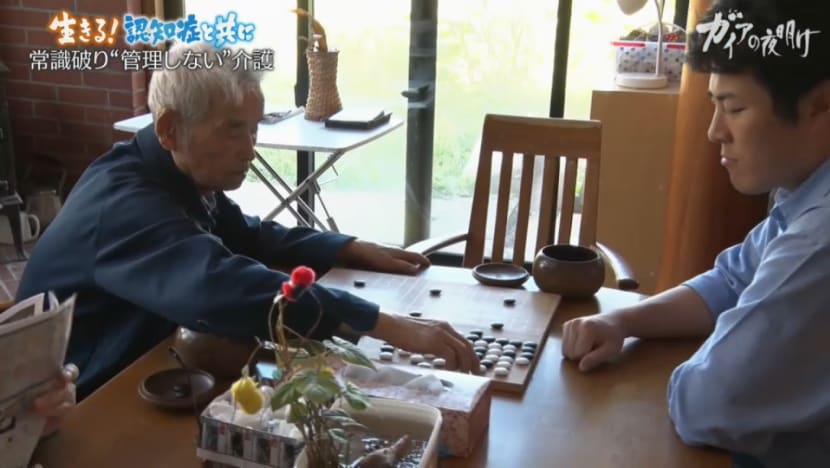Gaia Series 43 : Live with Dementia - The era of "1 in 5 seniors"
Japan's battle with an ageing population brings to the forefront innovative treatments and compassionate caregiving methods that are reshaping lives affected by dementia.


This audio is generated by an AI tool.
Amidst Japan's ageing population, innovative treatments and compassionate care paradigms are offering new hope and dignity to those living with dementia.
Japan stands at the forefront of an unprecedented demographic shift, being home to the world's oldest population. This phenomenon brings with it significant challenges, particularly the rising incidence of dementia. It is expected that one in every five person over the age of 65 will suffer this debilitating disease and that by 2025, there will be more than six million dementia patients in Japan.
In this week’s episode, we spotlight the wave of innovation in treatment and a transformation in care approaches that are unfolding across the nation, offering hope and dignity to those affected.
The recent development of 'Leqembi', a drug created through a collaboration between Japan's Eisai and America's Biogen, marks a significant advance in the fight against dementia. Approved for use in mild cognitive impairment stages of the disease, Leqembi has shown a 27 per cent efficacy in suppressing symptoms.
"This is a step forward towards a full-fledged treatment," announced Eisai CEO Haruo Naito, reflecting a monumental moment for dementia care.
Amidst this advancement, an intriguing approach in the treatment of dementia through sound therapy is also being tested. Developed by Shionogi & Co. Ltd., the "kikippa" device uses sound modulation at a 40Hz frequency, a process believed to activate gamma waves in the brain. These waves are crucial for cognitive functions and could potentially improve memory and cognitive functions in dementia patients.
Tatsuya Yanagawa from Shionogi explains, "By integrating a sound at 40Hz with the original sound, creating what we call 'modulation', we aim to activate brain functions non-invasively, offering new avenues for managing dementia symptoms."
Parallel to these scientific advancements, a change in caregiving paradigms is taking place. At Ginga no Sato, 40-bed care facility nestled in the mountains near Hanamaki City, Iwate, a unique model of care called 'unmanaged care' is being practised. Here, the ethos revolves around integrating residents into daily activities that resonate with their past experiences, thereby nurturing a sense of normalcy and belonging.
Chiharu Nagai, a 23-year-old caregiver at Ginga no Sato, embodies the facility's philosophy. Drawn to the centre's innovative approach, Nagai moved from Kanagawa Prefecture to contribute to a setting that prioritises the personal histories and preferences of its residents. "It’s about creating a community where every individual can thrive in their own way," she explains.
Residents at Ginga no Sato enjoy a degree of freedom rarely seen in traditional care settings. The residents, whose average age is 86 years old, participate in farming activities, engage in local festivals, and are encouraged to partake in daily decision-making processes. This approach not only combats the stigma associated with dementia but also reinforces the residents' agency and self-worth.
Yuki Obara, a 95-year-old resident, shares her vitality through activities that hark back to her days as a farmer's wife. "She's like the mother I used to know," says a fellow resident, testament to the centre's success in maintaining the residents' identity and zest for life despite their cognitive challenges.
However, challenges remain. Innovations such as 'Leqembi' are expensive and not accessible to all. Furthermore, as dementia progresses, the efficacy of such treatments can wane, highlighting the need for continued research and development in this field. The “kikippa” audio device using sound as therapy is also still in its infancy and it would take one to two decades to create a viable product.
Ginga no Sato thus offers an alternative model through its emphasis on personalised, compassionate care. This model is not without its trials but represents a crucial shift towards more humane and effective dementia care. The facility's success underscores the importance of understanding dementia not just as a medical condition but as a human experience that requires empathy, respect, and community engagement.
As Japan continues to navigate its super-aged society, the dual approaches of groundbreaking medical treatments and innovative care models like those at Ginga no Sato provide a beacon of hope. They not only enhance the quality of life for those with dementia but also offer valuable lessons on ageing with dignity.
The journey is far from over, but with each step forward, Japan is reshaping the landscape of dementia care, making it more inclusive, effective, and compassionate.












